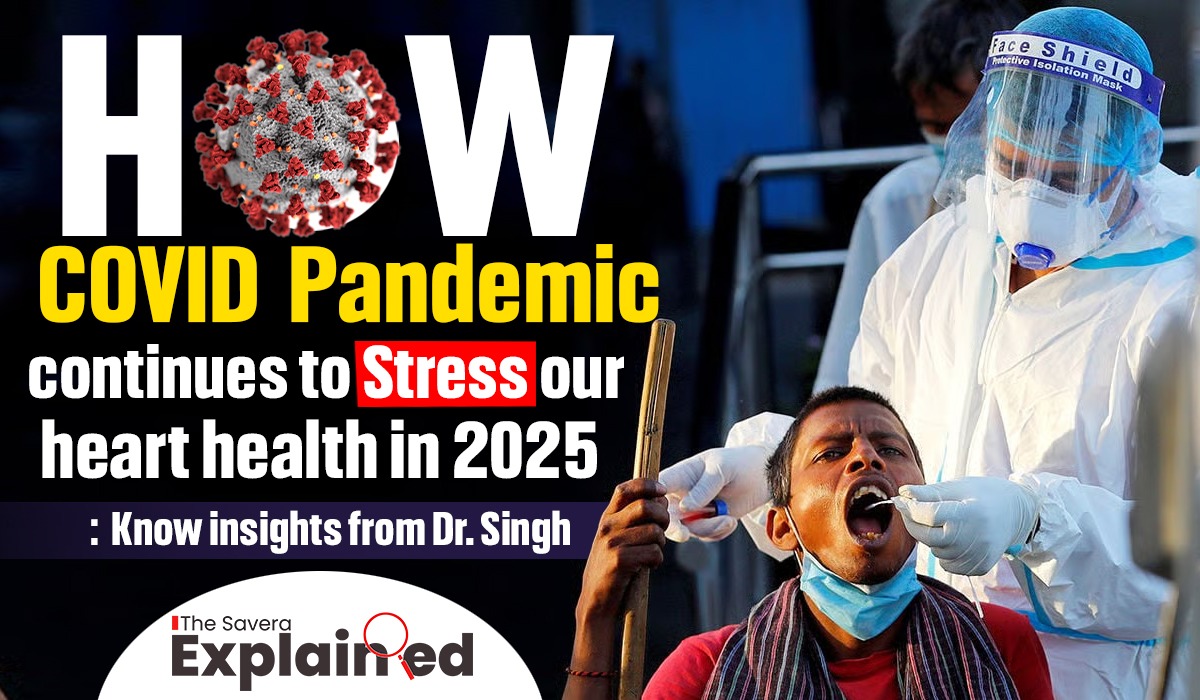
COVID-19, caused by the SARS-CoV-2 virus, is a highly contagious respiratory disease first identified in Wuhan, China, in 2019, leading to a global pandemic. It disrupted lives through lockdowns, economic turmoil, and millions of deaths, reminiscent of historical pandemics like the 1918 Spanish Flu. Social distancing, remote work, and strained healthcare systems reshaped daily life, while vaccine development echoed past medical triumphs. Its impact exposed global inequalities, mirroring historical plagues that revealed societal vulnerabilities.
Who is Dr. Balbir Singh?
According to Dr. Balbir Singh, a renowned cardiologist and Chairman of Cardiology at Max Healthcare, based at Max Super Speciality Hospital, Saket, New Delhi. Reflecting upon the current scenario about Covid-19, he said
“Even three years after the pandemic, we continue to see patients with no history of risk factors experiencing heart attacks. I myself have seen patients who felt chest pain, were breathless and had ECG (electrocardiograms) confirming a heart attack. Yet their angiogram looked normal with no blood clots or obstruction inside the artery but severe inflammation of the myocardium or heart muscle and tissue. This impacted the heart’s ability to pump oxygenated blood effectively, leading to a heart attack.”
“All of these patients had experienced a bout of Covid-19, be it the Delta variant or the much later Omicron variant. And now that the virus has become endemic, a surge always has patients asking us about the virus impact on the heart. Some research has established some hard facts. Others have yet to process data and make associations though studies are ongoing.”
Adding more, Dr Singh also shared some crucial insights from his experience on Covid, including how this endemic is affecting our lives, what are the changes one experience in their heart after recovering from Covid and how one can take care of their heart post-covid.
What we know from data so far
The Chinese did very good studies on chest MRIs of patients and found that the virus infiltrates the heart, builds up fluid or edema and that leads to arrhythmia or irregular heartbeats.
A study of over 11,000 people, who tested positive between February and December 2020 before the vaccinations, were more than twice as likely to have had a heart attack or stroke. A December 2022 Canadian review of four studies with data from 20 million people found people who had Covid-19 were five times more likely to have myocarditis (inflammation of the heart muscle) than those who did not have the virus. In short, this damage has triggered heart attacks, strokes and failure.
How does Covid-19 affect the heart?
Covid-19 can cause inflammation, which stresses out the heart as your body fights the infection. Your heart needs to work harder to pump more blood around your body, which can lead to heart palpitations or irregular heart rate. Sometimes the heart’s electrical impulses go awry, triggering a sudden cardiac arrest.
The virus can damage the inner lining of the heart’s blood vessels leading to blood leakage, clotting and reduced blood flow in the body. If the Covid-19 infection damages the lungs or a blood clot forms in the lung blood vessels, this can reduce the amount of oxygen and nutrients reaching the heart. This increased demand on the heart, paired with a lack of oxygen, can damage the heart muscle.
It can cause inflammation of the pericardium, the membrane surrounding the heart, which can cause chest pain and fluid buildup.
Can there be changes in the heart after recovering from Covid?
Some people experience changes in their heart rate after they have recovered from Covid-19. This could be because of persistent inflammation, which is seen as a threat by the autonomic nervous system. This system regulates all our essential body processes, like blood pressure, heart rate and breathing.
How to protect your heart post-Covid?
Current Scenario of Covid-19?
Notably, India is witnessing a rise in COVID-19 cases, with 3,758 active infections as of June 2, 2025. The surge is linked to emerging variants NB.1.8.1 and LF.7, while JN.1 remains dominant. Kerala, Delhi, and Maharashtra are reporting the highest spikes. Health authorities urge caution, emphasizing hygiene, mask use, and timely testing. Though hospitalizations remain low, experts warn against complacency. The World Health Organization classifies LF.7 and NB.1.8.1 as Variants Under Monitoring, meaning they are not yet considered Variants of Concern. Stay informed and take precautions to prevent further spread.
